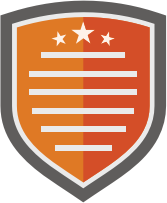The Act of Purposeful Reflection.
Reflecting is not something that happens organically in the classroom. Educators must not only provide a time in their class for reflection, but they must also teach students the act and art of purposeful reflection. This collection contains several simple examples (or activities) to aid students in understanding how to reflect on their work (or project) so that they can engage in higher order thinking skills in order to make improvements or adjustments to their work. Learning should not be segmented into the various subjects that students are being taught.
Another great effect of purposeful reflection allows a student to generalize what they learned from the act of doing the work. To see how it fits into the bigger schema of all that they have learned up to this point is key to moving towards a better understanding of what they are learning. This building of background knowledge, or life-long learning, will strengthen the neurological ties to understanding at a deeper level as a whole rather than a collection of separate experiences tied together by the idea of “school” or “instruction.”
Who benefitted from this project and how? What did you students learn that they could never have gotten from direct instruction?
Our whole learning community benefited from the information that was shared during this challenged-based learning unit. Middle and high school students have had the opportunity to explore a topic that is of interest to many students: space. Also, they have learned many generalizable strategies and skills that they can apply to any learning experience, such as analyzing, creating a hypothesis, hands-on learning, finding inferences, comparing and contrasting. Also the link to various career pathways has been very beneficial in that it has not only exposed them to these pathways, but it has immersed them into the various scenarios so they can think like a scientist, historian, journalist..... Finally, the students could not have experienced the collaborative, real-world environment that was simulated by this unit in a direct instruction lesson. There were times that direct instruction was necessary to make sure that all learners were "on the same page", but for the most part, I had the opportunity to act more as a facilitator than a content/ fact deliverer. My passion for learning new things and sharing them was an important part of this unit in my opinion. I learned as much putting together this learning opportunity as others have in doing them. The Future-Ready Schools Institute that I attended in Nashville motivated me to think of different ways to look at information delivery and the importance of promoting a collaborative environment.
Reflecting is not something that happens organically in the classroom. Educators must not only provide a time in their class for reflection, but they must also teach students the act and art of purposeful reflection. This collection contains several simple examples (or activities) to aid students in understanding how to reflect on their work (or project) so that they can engage in higher order thinking skills in order to make improvements or adjustments to their work. Learning should not be segmented into the various subjects that students are being taught.
Another great effect of purposeful reflection allows a student to generalize what they learned from the act of doing the work. To see how it fits into the bigger schema of all that they have learned up to this point is key to moving towards a better understanding of what they are learning. This building of background knowledge, or life-long learning, will strengthen the neurological ties to understanding at a deeper level as a whole rather than a collection of separate experiences tied together by the idea of “school” or “instruction.”
Who benefitted from this project and how? What did you students learn that they could never have gotten from direct instruction?
Our whole learning community benefited from the information that was shared during this challenged-based learning unit. Middle and high school students have had the opportunity to explore a topic that is of interest to many students: space. Also, they have learned many generalizable strategies and skills that they can apply to any learning experience, such as analyzing, creating a hypothesis, hands-on learning, finding inferences, comparing and contrasting. Also the link to various career pathways has been very beneficial in that it has not only exposed them to these pathways, but it has immersed them into the various scenarios so they can think like a scientist, historian, journalist..... Finally, the students could not have experienced the collaborative, real-world environment that was simulated by this unit in a direct instruction lesson. There were times that direct instruction was necessary to make sure that all learners were "on the same page", but for the most part, I had the opportunity to act more as a facilitator than a content/ fact deliverer. My passion for learning new things and sharing them was an important part of this unit in my opinion. I learned as much putting together this learning opportunity as others have in doing them. The Future-Ready Schools Institute that I attended in Nashville motivated me to think of different ways to look at information delivery and the importance of promoting a collaborative environment.


